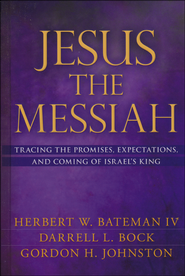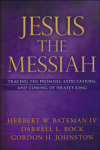 When I was a student at Dallas Theological Seminary, one of my favorite professors was Gordon Johnston.
When I was a student at Dallas Theological Seminary, one of my favorite professors was Gordon Johnston.
He had a way of teaching that brought interest and insight to the text of Scripture. He could take a passage you have heard taught a thousand times before and show you new and intriguing truths from it. One of the things I also appreciated about him is that he was extremely generous with his research and writing. During one class he passed around a thumb-drive which contained all of the research and articles he had compiled for a book he was writing. He told us that if we wanted, we could copy all the files over to our laptops.
I copied them all, of course, and the files he freely gave are still one of the valuable resources I have on my computer. His actions in freely giving to others is one reason I give away all the books I write.
Ironically, and I never told Professor Johnston this, but I also credit him for getting me fired from my ministry job while in Dallas. It was primarily the things I learned in his class which got me in trouble with the ministry I was working at. They were uncomfortable with some of the books and ideas that Johnston was promoting, and since they were afraid that I might one day believe these things myself, they terminated my employment.
Of course, I am not upset at Dr. Johnston or the people who terminated my employment.
Although it was a painful at the time (and sometimes still is), the loss of my job was one of the best things that ever happened to me. As a result of me losing my job, I was liberated and freed to follow Jesus in ways I never would have had the courage to do on my own.
So in light of all this, it was with great excitement and nostalgia that I recently received from Kregel Academic a review copy of a book called Jesus the Messiah which was co-authored by Gordon Johnston, Darrel Bock, and Herbert Bateman.
 The book has three sections. Gordon Johnston wrote the first section, which covers the Messianic prophecies about Jesus in the Hebrew Scriptures. Herbert Bateman wrote the second section, which covers the Intertestamental period and how the concept of the Messiah developed and evolved during these 400 years between the end of the “First Testament” (as they refer to the Old Testament in the book) and the birth of Jesus. Finally, the third section is written by Darrel Bock, and deals with the concept and teaching about the Messiah from the books of the New Testament.
The book has three sections. Gordon Johnston wrote the first section, which covers the Messianic prophecies about Jesus in the Hebrew Scriptures. Herbert Bateman wrote the second section, which covers the Intertestamental period and how the concept of the Messiah developed and evolved during these 400 years between the end of the “First Testament” (as they refer to the Old Testament in the book) and the birth of Jesus. Finally, the third section is written by Darrel Bock, and deals with the concept and teaching about the Messiah from the books of the New Testament.
The entire book is worth reading. I enjoy learning more about the New Testament and how Jesus is represented by the various authors (Bock’s section), and Jewish historical and critical background material (Bateman’s section) has always been an interest of mine. But I really appreciated the chapters by Gordon Johnston. Maybe it is simply because of my history with Dr. Johnston, as many of the ideas and themes he wrote about are similar to what he taught in class, or maybe it is because Christological themes in the Old Testament are a recent interest of mine as I work on writing a commentary on the book of Jonah.
One of the things I really appreciated about the chapters by Johnston is the emphasis on the Messianic trajectories in the Hebrew Scriptures. Many people struggle with how to teach and preach about Jesus from the Old Testament. Some pastors and teachers say that we should not read Jesus back into the Old Testament, and other pastors and teachers claim the opposite, that we cannot properly read the Old Testament unless we read them in light of Jesus Christ.
I think the approach by Gordon Johnston is healthy and sound: he points out that while the texts and passages that are typically used to refer prophetically to Jesus Christ were not exclusively and directly prophet for the original Jewish audience, the promises and hope that are contained within these texts were never ultimately or completely fulfilled in any human king or historical era, and so always left open the expectation for something (or Someone) more. In other words, although the patriarchs, prophets, and kings of Israel often partially fulfilled some of the prophecies about them, they never fully fulfilled any of them, thereby leaving open the expectation for one to come who would completely fulfill them all. When Jesus came, He was, of course, this ultimate and final fulfillment.
There is a lot of valuable information in this book, and if you are interested in learning more about Jesus and the development of Messianic themes in the Old Testament, in the Intertestamental period, and in the New Testament, I highly recommend Jesus the Messiah by Bateman, Bock, and Johnston.




Leave a Comment or Question